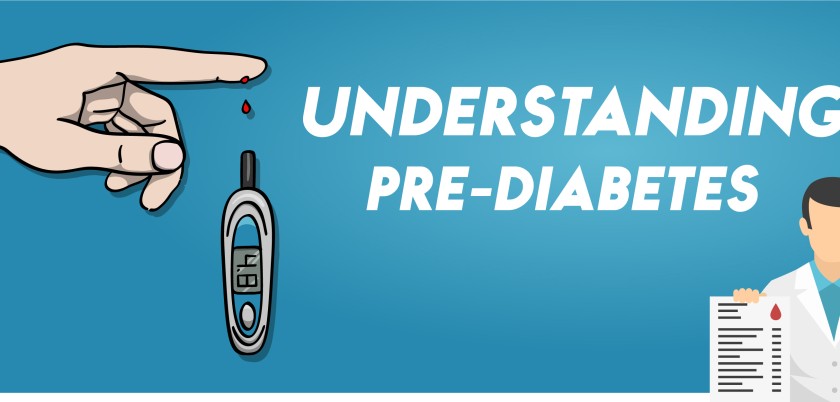
UNDERSTANDING PRE-DIABETES – HOW TO KNOW AND WHAT TO DO
With the growing incidence of Diabetes, half of the population is not even aware whether they have the condition or not.
Pre-diabetes is the early stage of diabetes where you have higher blood glucose levels but not enough to be considered as diabetes. Studies have suggested that around 70% of pre-diabetics may be diagnosed with diabetes in the future.
Here are some practical guidelines on how to identify pre-diabetes and what measures you can take.
1. DIAGNOSING PRE-DIABETES
The cause of diabetes is highly varied and it could be due to your age, sex, genetics, or lifestyle. If you are finding yourself facing any of the risk factors for diabetes it is better to check your blood glucose levels routinely.
If your fasting blood glucose levels are above normal, between 100mg/dl to 125mg/dl, or if your HbA1C is anywhere around 5.7% to 6.4% you can be diagnosed with pre-diabetics.
Unlike the name, pre-diabetes can progress faster if not managed effectively.
2. IDENTIFYING SYMPTOMS
Most individuals with pre-diabetes may not experience any classic symptoms of diabetes. This is the common reason for many cases going unnoticed. Very few people may experience symptoms like increased appetite, blurring vision, fatigue, increased healing time of cuts or bruises, and sweating.
If you have a family history of diabetes along with other risk factors, your best bet is to do a routine check-up.
3. MANAGING PRE-DIABETES
Pre-diabetes has all possibilities to progress to diabetes. But with the right intervention, you can alleviate the complications and, in some cases, even reverse them.
REDUCING WEIGHT
Researchers have shown that a weight loss of about 7% has improved the overall management of diabetes. You may reap better results if you could focus on both nutrition and exercise for promoting weight loss.
A NOURISHING DIET
A healthy and wholesome diet rich in fiber, vitamins, and minerals will help in maintaining your insulin sensitivity. Including more nutrient-dense foods will help you in your goal of reversing diabetes.
START EXERCISING
To all the pre-diabetics it’s time to become a stairs-person. Start involving in different physical activities from day 1 and progress to daily exercise routines. Exercise helps in the efficient use of glucose by cells and also improves insulin sensitivity.
MANAGING STRESS
Though stress is not the only contributing factor, it can still propel your progression to diabetes. Handling stress effectively through some management techniques will be beneficial.
Our body works in million ways and sometimes you may miss certain cues. Monitoring blood glucose periodically will help you with diagnosing pre-diabetes. Early lifestyle and dietary intervention can make the progression of the disease more manageable and reduce complications.






